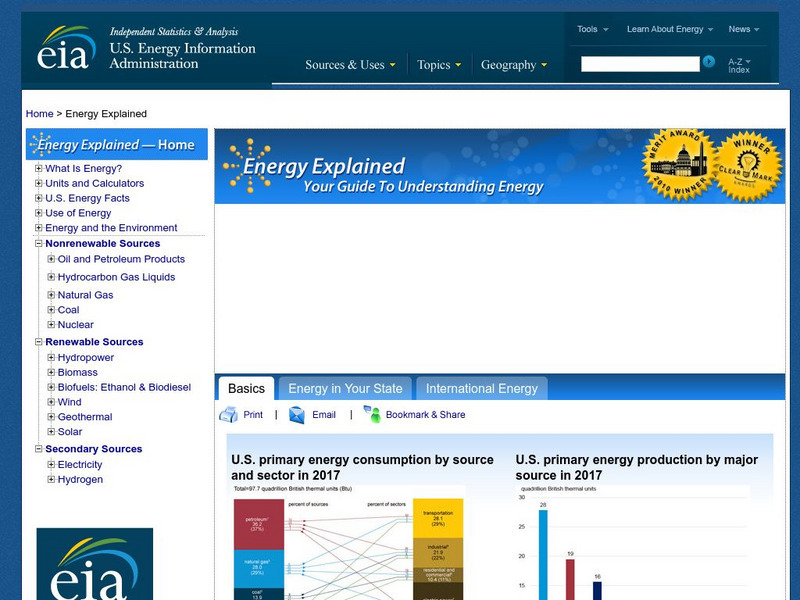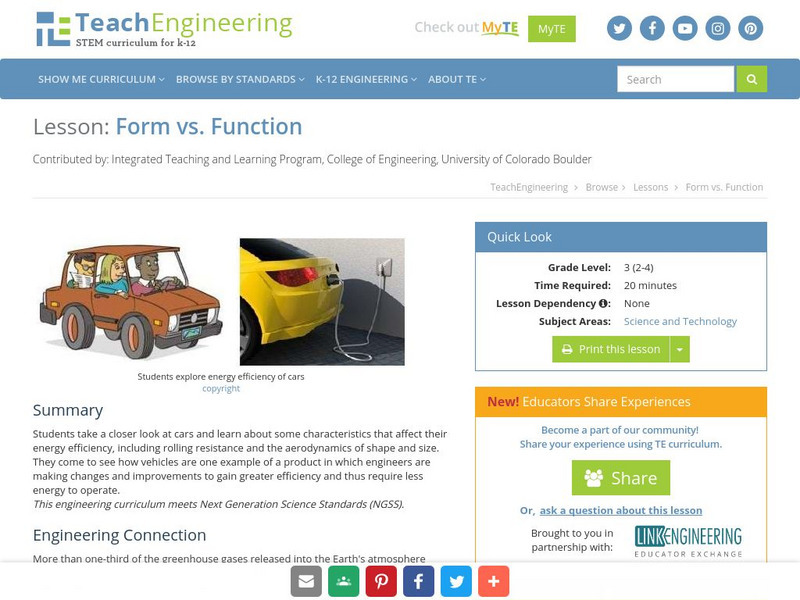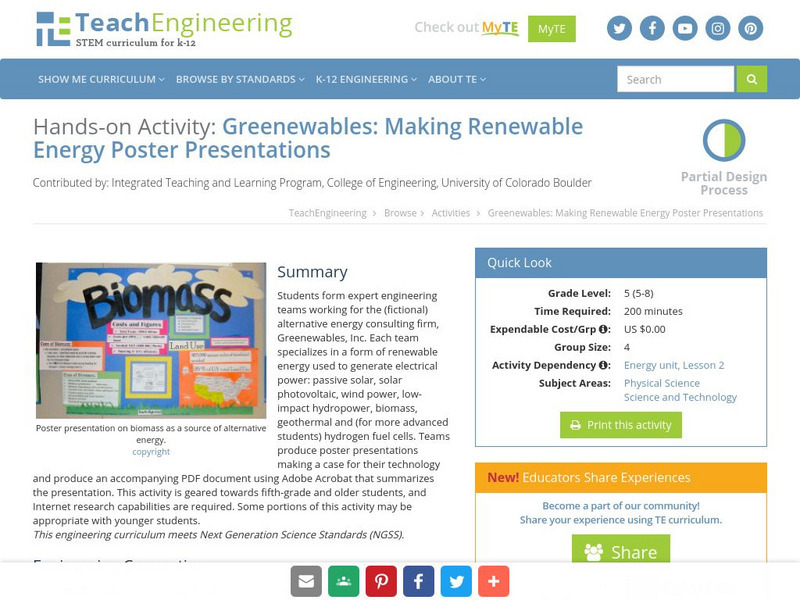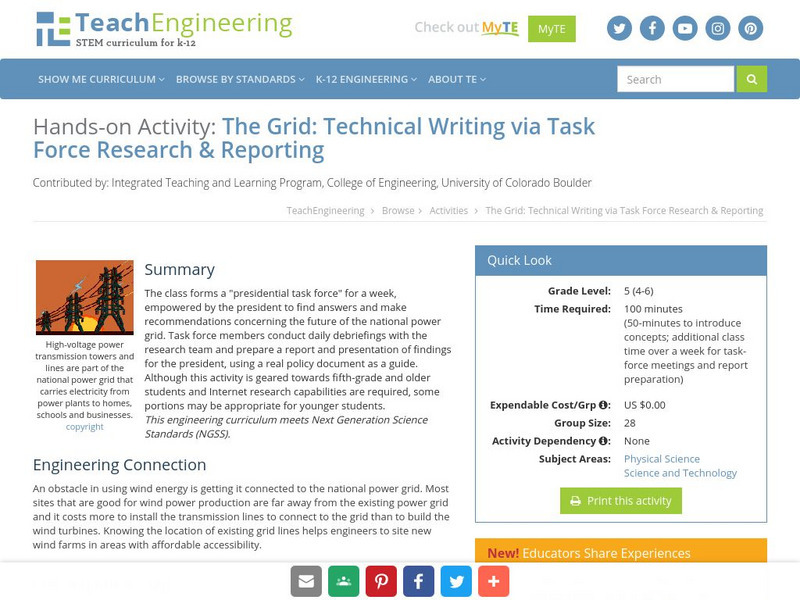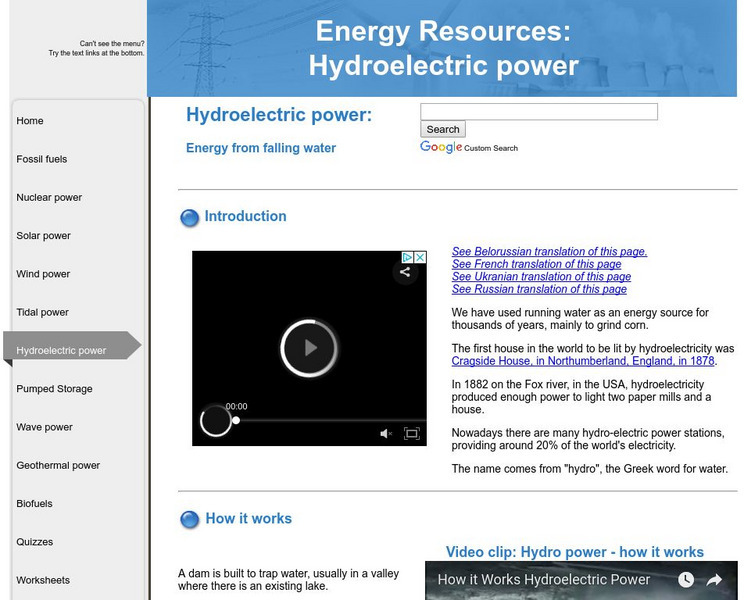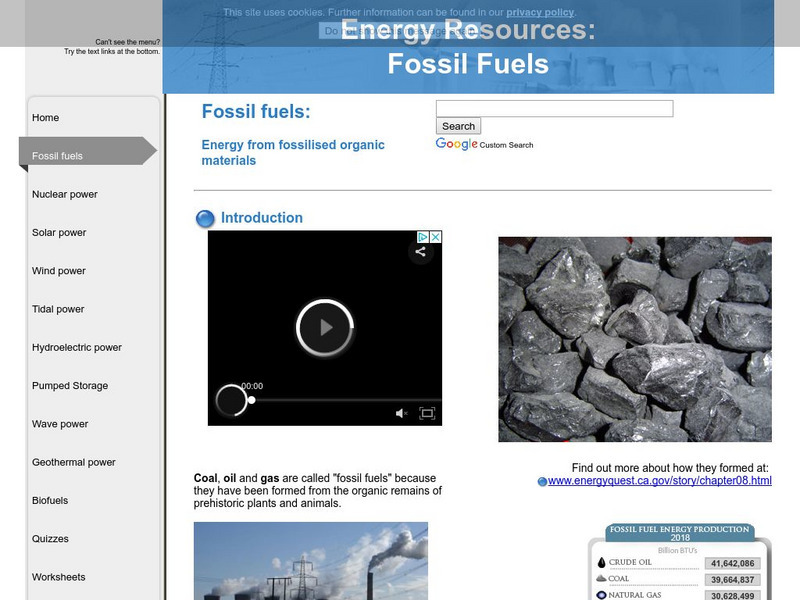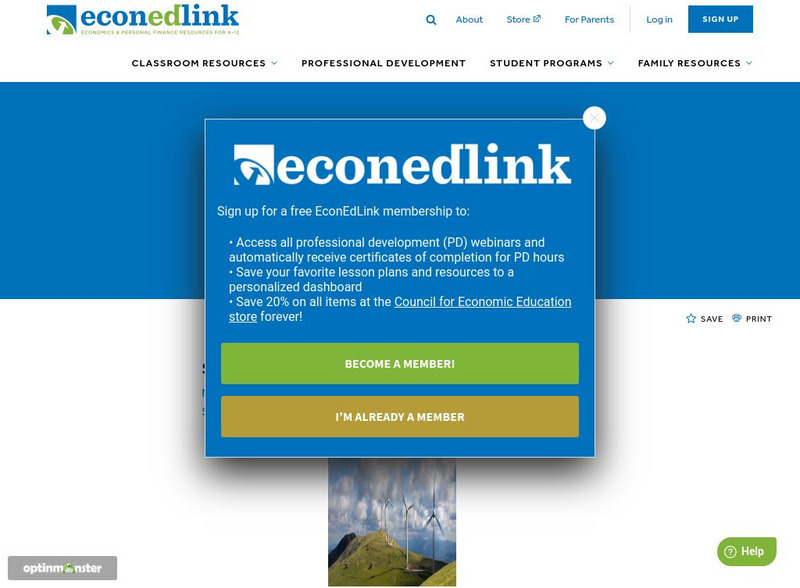Hi, what do you want to do?
US Energy Information Administration
U.s. Eia Energy Kids: Energy Explained
A comprehensive source of information about energy in all its forms. Each type of energy is explained, along with information about its environmental impact, supported with graphs, charts, and other data. There is a twenty-question quiz...
Other
National Renewable Energy Laboratory: Learning About Renewable Energy
Extensive information about the different forms of renewable energy, energy efficiencies that can be achieved, energy research, and the many applications for renewable energy production.
TeachEngineering
Teach Engineering: Form vs. Function
Students take a closer look at cars and learn about some characteristics that affect their energy efficiency, including rolling resistance and the aerodynamics of shape and size. They come to see how vehicles are one example of a product...
TeachEngineering
Teach Engineering: Greenewables
Students form expert engineering teams working for the (fictional) alternative energy consulting firm, Greenewables, Inc. Each team specializes in a form of renewable energy used to generate electrical power: passive solar, solar...
TeachEngineering
Teach Engineering: The Grid
The class forms a "Presidential Task Force" for a week, empowered by the president to find answers and make recommendations concerning the future of the national power grid. Task force members conduct daily debriefings with their...
Other
Energy Resources: Hydro Electric Power
Alternative forms of energy site showcases Hydro-electric power. Discover how it works, it's advantages and disadvantages as well as whether or not it's considered to be a renewable resource.
Other
Chewonki Foundation: Pathways to a Sustainable Future: Renewable Energy
Information on different forms of renewable energy with links for student projects, resources for teachers, and links to related resources.
TeachEngineering
Teach Engineering: Environmental Challenges in China
Students learn about the wonderful and fascinating country of China, and its environmental challenges that require engineering solutions, many in the form of increased energy efficiency, the incorporation of renewable energy, and new...
Climate Literacy
Clean: Solar Water Heater
Student teams design and build solar water heaters to capture energy in the form of solar radiation and convert it to thermal energy. Once the model devices are constructed, students perform efficiency calculations and compare designs.
Khan Academy
Khan Academy: Claim Testers: Episode 4 Fueling the Future
The claim tester gang comes face-to-face with Orx-30. This comic focuses around the topic of sustainable forms of energy.
Other
Energy Resources: Fossil Fuels
Alternative forms of energy site showcases fossil fuels. Discover how it works, its' advantages and disadvantages as well as whether or not it's a renewable resource.
Council for Economic Education
Econ Ed Link: Blowing in the Wind
Wind energy is becoming a viable alternative to more traditional forms of energy generation. In this lesson, students will determine the feasibility of wind generation in different areas of the United States. Finally, students will...
TeachEngineering
Teach Engineering: Antimatter Matters
Antimatter, the charge reversed equivalent of matter, has captured the imaginations of science fiction fans for years as a perfectly efficient form of energy. While normal matter consists of atoms with negatively charged electrons...





